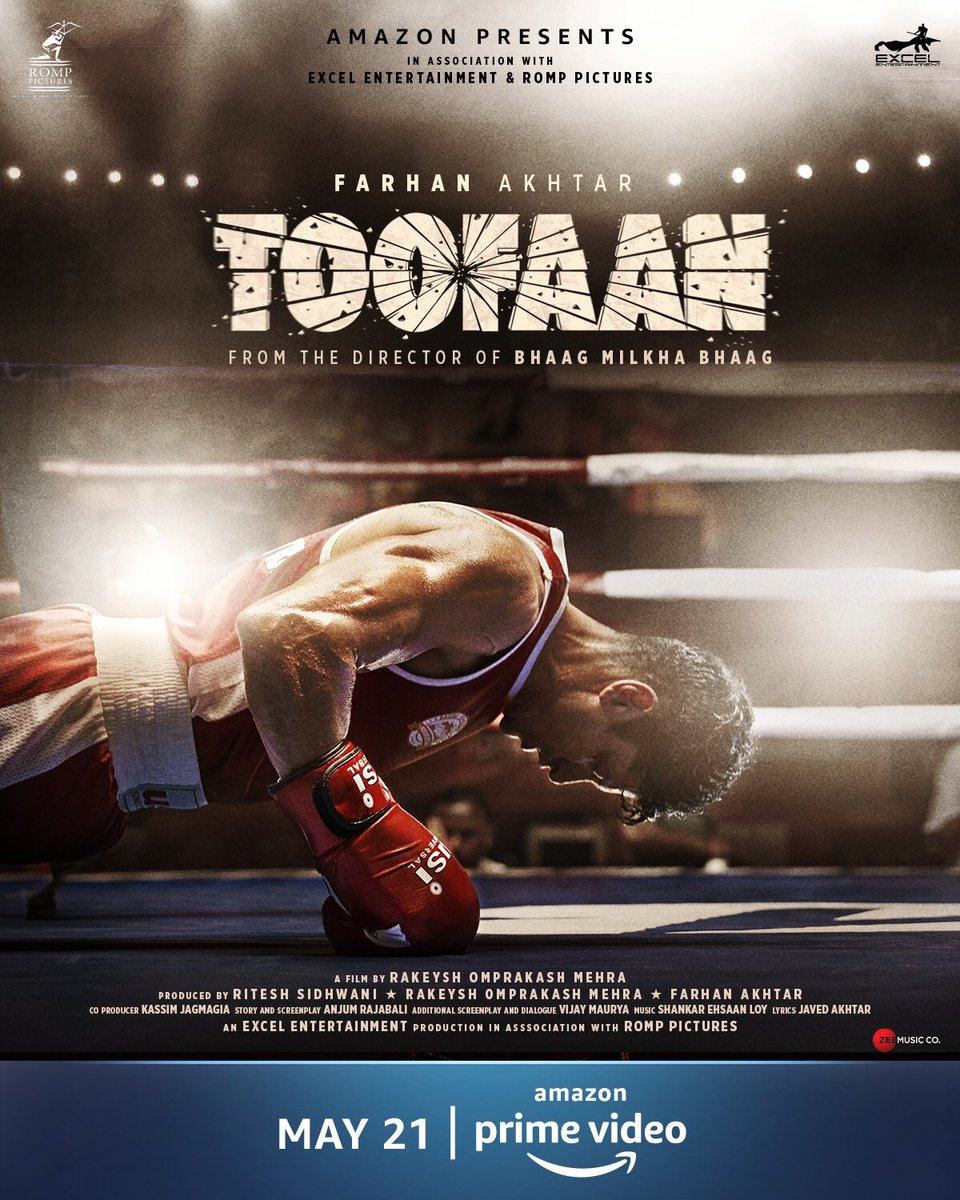Don’t Cry Barbie: The Controversy Over Gerwig and Robbie’s Missed Nominations Distorts a Winning Story
Portraying Barbie as a film that was snubbed and defeated by the 2024 Oscar nominations reveals a lack of knowledge of how things work at the Academy and a desire to be indignant at all costs, even when there would be something to celebrate. 24 hours after the announcement of the 2024 Oscar nominations, a controversy is raging that has far exceeded the boundaries of the cinephile world and social media. A blaze of indignation overwhelmed those who saw the 8 nominations for Greta Gerwig’s film Barbie as a defeat. Despite being among the most nominated films and entering very important categories (two nominated actors, best film, best screenplay), fans and part of the press are portraying the film as the great defeat of this round of the Oscars. The main object of contention are two missed nominations: that of Greta Gerwig as director and that of the protagonist Margot Robbie as best supporting actress. Some speak of misogyny, those who, like Stephen King on Twitter, argue that the Oscars are completely disconnected from the public’s tastes.

A curious position, given that the two highest grossers of the year – Oppenheimer and Barbie – together exceeded 20 nominations, appearing in all the main categories. Often these controversies arise from pre-sale and arbitrary outrage, which confuses personal tastes such as preferences and objectives of the Academy Awards. So let’s take stock of how one gets to be nominated for an Oscar, what favored Barbie or not and above all, we explain why this controversy is detrimental to the film itself, which instead achieved an extraordinary result, which should be celebrated.
The Oscars Are Not Audience or Popularity Awards
Let’s clear up two basic misunderstandings. As I already explained in the considerations on winners and losers among the nominees for the 2024 Oscars, the Academy Awards are an expression of the film industry: that of the US majors, old and new, who live in cinema. The Academy is made up of professionals from the world of cinema, largely American and English-speaking, even if the voting body is gradually becoming more international. Neither critics nor the public nor people outside the cinema world are part of it. Among the voters there are all types of professionals: directors, performers, directors of photography but also representatives of press offices, casting directors, and lighting technicians. Entry is by invitation, having previously been nominated, having won a statuette, or having achieved particular career goals in this field.
The nature of the voting body reflects some of its choices and predilections. What is beautiful and worthy for those who work in cinema is often very different from the evaluations of those who judge cinema for work or see it in theaters as spectators. It is understandable that for the most successful professionals in the world, for example, quality and authorship are a priority value over public approval, which however has its weight. It is not illogical that auteur cinema is preferred among authors, for example. For many, voting is a question of politics, identity, and friendship: you vote for films that express the direction in which you would like the industry to move, to recognize the value of a colleague, perhaps in opposition to what you don’t like. Often, working for most of the year, voters do not see all the films, concentrating their votes on the few titles seen or even recommended by acquaintances. At the Oscars, Hollywood celebrates itself, in an internal dialogue that the public often does not understand or misunderstands.
Because Barbie Comes Out on Top with 8 Nominations
For the reasons listed above, films of a clear commercial nature, released before autumn (when voters begin to be interested in “award-winning” films) and which do not express some of the values favored by the Academy have a much, much more difficult life. Summer blockbusters and great entertainment films in general struggle a lot because the Academy, rightly or wrongly, outside of the technical categories tends to reward the most personal, authorial, and experimental works. The dramatic tone tends to prevail over comedy, films that focus on reflection, that make a denunciation, that give visibility to less accessible stories and characters, compared to those that make pure entertainment, often become popular.
Top Gun: Maverick, Avatar, and The Dark Knight are three box office champions who have faced the same type of controversy. Great box office receipts, excellent critics, and nominations in the main categories are often overlooked. The outrage over Christopher Nolan’s The Dark Knight, which missed the director nomination, was such that it led to a historic change in the Best Picture category. After that year the number of nominees for best film went from 5 to 10, giving space to both commercial films and small authorial works. A space that several films have benefited from, including probably Barbie itself. Declassifying 4 nominations in the main categories such as best film, best screenplay, best actor, and supporting actress as a failure is short-sighted and at times unpleasant, especially in a year of great quality like this one.

The interpreters of Barbie Gosling and Ferrara obtained a nomination that was anything but certain on the eve, pushing out from the five finalists some favorites with great performances, for whom this visibility would have benefited greatly. Just mention the debutant Dominic Sessa for The Holdovers – Life Lessons, left with the match in hand, probably the first of the excluded. The academy does not provide the data relating to the votes, so we are in the field of hypotheses, but bettors and insiders are monitoring the situation hour by hour. Gosling is a star and has a powerful film like Barbie behind him, which certainly helped him compared to Sessa, very young, and unknown, with a less impressive marketing campaign behind it. Ferrera obtained an even more unexpected nomination, obtained also thanks to the driving force of the film. In short, for Robbie who can’t make it, a Ferrera and a Gosling come into the mix. Each category is unrelated to the other, so it is a question of statistics, not of spite between one category and another. It is also worth remembering that Margot Robbie and Greta Gerwig are both nominated: the former as producer for Barbie best film, the latter as co-screenwriter of the same. They have a real chance of winning the statuette.
Greta Gerwig vs Christopher Nolan: The Rhetoric of the Snubbed
The peak of absurdity, however, is reached when an attempt is made to portray Greta Gerwig as a Hollywood pariah, who is denied a directorial nomination that on paper would seem sacrosanct. The first consideration to make in this regard: no nomination in the Best Director category is given. It is one of the most difficult applications ever to obtain, due to the very strong internal competition and the difficulty of establishing oneself. Some directors have chased this goal all their lives, shaping immaculate careers made of great films, reaching the nomination at an advanced age, or never achieving it (notoriously: Stanley Kubrick).
Undoubtedly there is a problem with minorities and the gender issue: in the almost hundred-year history of the Oscars, very few women have been nominated as directors, and even fewer have won. If the statistics are improving, it is because great attention has been paid to this sense in recent years. As regards ethnic and minority nationalities, things are even worse: for African Americans, Latinos, those of Asian descent and even more so for foreigners, nomination as directors is almost a mirage, victory an absolute rarity. In this sense too, things are changing, but very, very slowly. However, the exclusion of the Caucasian and American Gerwig, from whatever perspective you look at it, does not seem to concern her being a woman, but the type of film and direction with which she presents herself and the competition she faces.
Let’s go back to this year’s top five directors: is there someone who “stole” Gerwig’s place? As a spectator of all the nominated films and the main ones excluded, I feel like saying that this quintet is a rare expression of a balanced choice made in the name of absolute quality. The question to ask those who complain about the lack of Gerwig is: who would you remove? Nolan, Lanthimos, and Scorsese are moving at the highest levels of their stellar careers and are thoroughbred directors, with the vision and personality of mature filmmakers. Glazer made a film entirely focused on extreme stylistic choices, the most experimental of the Oscar year, which particularly deserved this nomination.

Then there’s her, Justine Triet, the woman who managed to get into the top five in a year when the absence of female directors was feared. He does it with an authorial film – Anatomy of a Fall – but at the same time marketable to the general public, which has achieved notable success at the box office and which, like Barbie, brings with it a discussion on being a woman in the face of a society that has a series of precise expectations towards the female gender. The implicit assumption that Triet “stole the job” of Gerwig is particularly odious from a cinephile and feminist point of view. For Triet the climb was very difficult, as a woman and as a Frenchman, that is, a foreigner, that is, not strong in connections, popularity, or familiarity with the Hollywood world.
Greta Gerwig on the other hand is a powerful name in Hollywood. So powerful that she achieved this nomination with her first solo directorial, Ladybird, in 2017. Since then, she has made 2 other films, which have always earned her at least one significant nomination (best film, best screenplay). For her debut film as a director, more authorial than Barbie and with an undoubtedly smaller budget, she already had a stellar cast at her disposal, having among the protagonists Saoirse Ronan and Timothée Chalamet after the success of Call Me by Your Name. There are very few directors who have achieved a nomination on their debut. Even fewer are those who can boast a nomination for every film shot in their filmography under the age of 40. Greta Gerwig is carried in the palm of her hand by the Academy, so much so that she has achieved 8 nominations with a film far from her wishes.
To understand the favor he enjoys, just look at the main competitor of his film this year: Christopher Nolan, director of Oppenheimer. Male, white, English-speaking, acclaimed as the Kubrick of this generation, already recognized among the greatest living filmmakers. Nolan has the kind of profile that gives him the power to break through even in the difficult categories of the Oscars. Nolan’s first directorial nomination instead came a year after Gerwig’s. He achieved it in 2018 with Dunkirk, his tenth directorial, after years of failed attempts. To achieve this result he also moved away from the more commercial cinema, pushing himself into the territory of more extreme authorship.
To sum things up: of course, we can agree or disagree on the 2024 Oscar nominations. It’s part of the game and also part of the fun of following the film awards season. However, we must not forget that many variables favor or disfavor a name: does gender matter? Of course, your passport, ethnicity, career, character, popularity, where you live in Los Angeles, how well you speak English, and how much you breathe the air of the studios in your circle of family and friends also counts. At 40 and 33 years of age, Greta Gerwig and Margot Robbie have already proven themselves to be great professionals in their work and in navigating the entertainment industry of which they are a part. Portraying them as victims is ungenerous, false, and above all deprives them of the victory that Barbie and her Oscar nominations represent for both of them.






